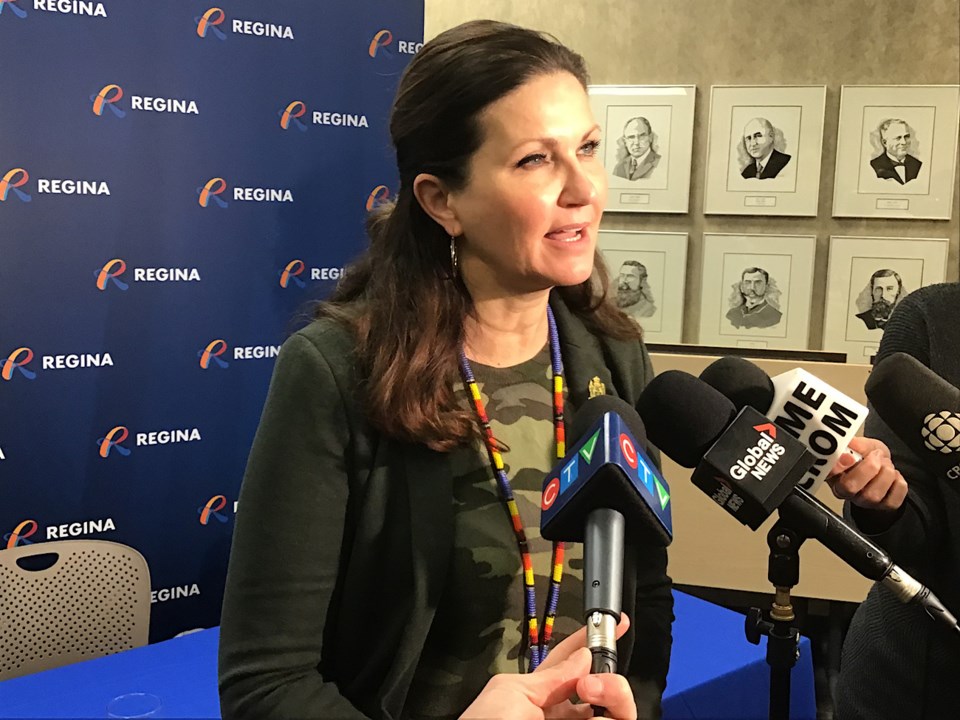REGINA - Officials at Regina City Hall have released their proposed 2024 budget, which includes a lower-than-anticipated proposed mill rate increase of 2.2 percent.
Officials including City Manager Niki Anderson and Executive Director of Financial Strategy & Sustainability Barry Lacey presented a technical briefing of the City of Regina budget to reporters on Friday afternoon. This budget marks the second year of the multiyear city budget that was approved last December.
Here are highlights from the budget proposals presented by administration:
The 2.2 per cent mill rate increase is much less than what was originally contemplated. The original proposal in the city's first-ever multiyear budget that was adopted last year had called for a 4.66 per cent mill rate increase, and then during pre-budget discussions this fall, that number had gone up to 5.29 per cent due to the addition of a one time dedicated mill rate for the Eastern Pressure Solution.
But the mill rate had been lowered down to the final 2.2 per cent, achieved by removing 3.09 per cent as a result of the recent funding change for garbage collection towards a user fee model.
The breakdown of the 2024 mill rate increase is as follows: For civic operations it is 2.18 per cent. For recreational infrastructure, the dedicated mill rate is .5 per cent. For police operations, it is 1.98 per cent. Adding in the Eastern Pressure Solution mill rate of .63 per cent and a reduction for garbage collection of 3.09 per cent, this brings the total proposed mill rate increase to 2.20 per cent.
Utility rates are also set to go up. Council had already approved a utility rate increase of four per cent for 2024, with three per cent towards maintaining the status quo and a one percent increase for the Buffalo Pound Water Treatment Plant upgrade coming into effect on January 1.
As for what this all means for the average household, the four per cent utility rate increase amounts to $6.60 per month on average. The new user fees for garbage and food and yard waste come to $8.52. Overall, added together the utility bill increase to the average residential customer is $15.12. With the mill rate increase, the property tax on the average household would come to $4.30 a month. Overall, the net impact per month comes to $19.42 for the average household.
The city is also looking to move ahead with capital investments, while also deferring a number of other projects. Those projects that are progressing include Community Space in Schools, Conventional Transit fleet replacement, Dewdney Ave. Corridor rehabilitation, facility upgrades to support bus electrification, a Geothermal Heating Facility ($1.1 million), a new indoor aquatic facility ($8.6 million) and replacement for the Lawson Aquatic Centre, the North East Community Centre ($2.5 million), and two fire stations in the south of the city.
Deferred projects include the Saskatchewan Drive corridor project, the Scarth Street revitalization, 11th Ave. Utility and Corridor upgrades, and Renewable Regina 2050 facility upgrades, and there is also some impact on asset management programs.
Numbers in the draft budget include $43.8 million for roads, which includes $13.6 million for street infrastructure renewal of major roads and $16.6 million for residential road renewal; $1 million for emergency shelters, $48.2 million for Regina Fire and Protective services; and $115.6 million for Regina Police Services which is up $6 million. $19.8 million is going to community investments, and $39.6 million is going to transit and fleet.
The final numbers could still change during budget deliberations, which will be held Dec. 13-15 at City Hall. That is expected to see city council take a deep look into requests from organizations such as REAL, who this week had come to council requesting $5.8 million — roughly five times last year’s grant.
In speaking to reporters about the proposed tax and rate increases, Mayor Sandra Masters acknowledged the financial pressures residents in the city were facing.
“What I struggle with, as we know, that between interest rates, inflation, grocery costs, fuel costs, everything is up for citizens — it’s also up for ourselves,” sad Masters, who pointed to their capital costs going up around 30 per cent.
“So on the one hand, I would have an expectation that right around inflation rate makes some sense, and on the other hand, you struggle, you’re super sensitive to the fact that every household, every employee in the city of Regina included, has a significant amount of pressure just to be in market right now.”
As for the deferred items, Masters expressed some disappointment that some of those aren’t going ahead sooner. “Sask Drive kills me,” Masters said of that major project which is being put off to years down the road.
“Yeah, it’s disappointing, but when you’re trying to play catch-up on everything from water to wastewater to roadways and asset replacement, it’s just a matter of trying to make those decisions for what makes logically the most sense from a sequencing perspective."
SASKTODAY.ca is Saskatchewan's home page. Bookmark us at this link.





